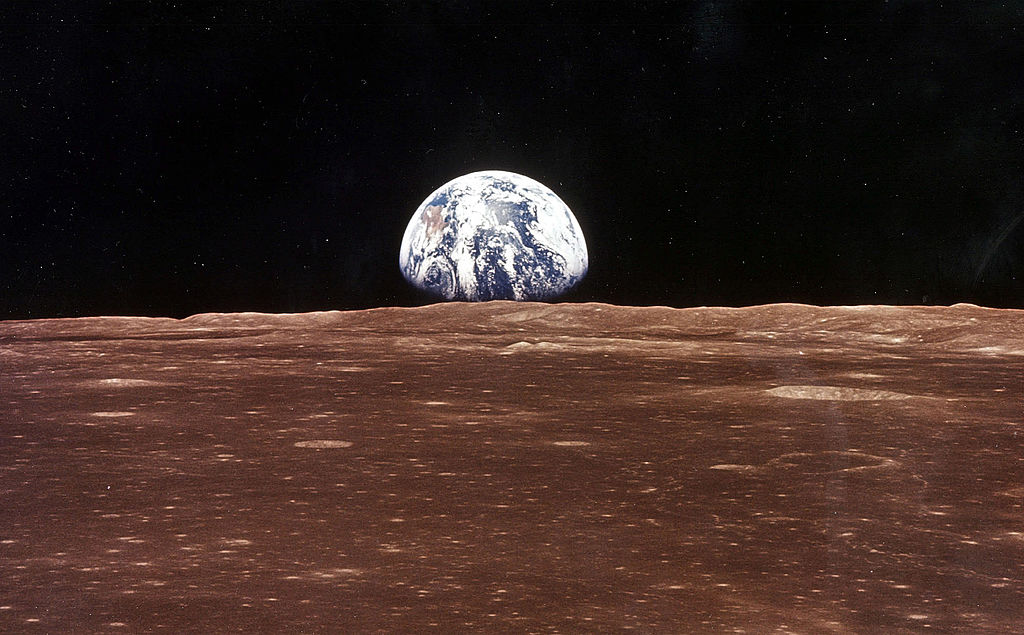Potentially habitable planet found orbiting the nearest star to the sun


Astrophysicists are thrilled with the discovery of a planet outside our solar system that is within the "habitable zone" of the star Proxima Centauri, meaning water could exist there.
"Finding out that the nearest star to the sun hosts not just a planet, not just an Earth-sized planet, but one which is in the right location that it could support life — and there are a lot of caveats there — really underscores that not only are planets very common in our galaxy, but potentially habitable planets are common," Eamonn Kerins, an astrophysicist at Jodrell Bank Center for Astrophysics, told The Guardian. Named Proxima b, the planet is believed to be at least 1.3 times the mass of Earth, and is 4.2 light years away, meaning if a spacecraft left today, it would take close to 70,000 years for the probe to make it to the planet.
In the journal Nature, researchers wrote they found the planet after analyzing data based on light emitted by Proxima Centauri. It takes 11.2 days for the planet to travel around Proxima Centauri, and it orbits at 4.7 million miles, or 5 percent of the 93 million miles separating the Earth and the sun. Researchers say it's still in the habitable zone because Proxima Centauri is a red dwarf that is smaller, cooler, and dimmer than our yellow dwarf sun. It's unclear if the planet has an atmosphere, oceans, or any forms of life, but one of the authors of the study said it's possible the planet "could be detected with direct imaging within the next 10 years." For Guillem Anglada-Escudé at Queen Mary University of London, "just the discovery, the sense of exploration, of finding something so close, I think it is what makes [it] very exciting."
The Week
Escape your echo chamber. Get the facts behind the news, plus analysis from multiple perspectives.

Sign up for The Week's Free Newsletters
From our morning news briefing to a weekly Good News Newsletter, get the best of The Week delivered directly to your inbox.
From our morning news briefing to a weekly Good News Newsletter, get the best of The Week delivered directly to your inbox.
A free daily email with the biggest news stories of the day – and the best features from TheWeek.com
Catherine Garcia has worked as a senior writer at The Week since 2014. Her writing and reporting have appeared in Entertainment Weekly, The New York Times, Wirecutter, NBC News and "The Book of Jezebel," among others. She's a graduate of the University of Redlands and the Columbia University Graduate School of Journalism.
-
 Blue Origin launches Mars probes in NASA debut
Blue Origin launches Mars probes in NASA debutSpeed Read The New Glenn rocket is carrying small twin spacecraft toward Mars as part of NASA’s Escapade mission
-
 Dinosaurs were thriving before asteroid, study finds
Dinosaurs were thriving before asteroid, study findsSpeed Read The dinosaurs would not have gone extinct if not for the asteroid
-
 SpaceX breaks Starship losing streak in 10th test
SpaceX breaks Starship losing streak in 10th testspeed read The Starship rocket's test flight was largely successful, deploying eight dummy satellites during its hour in space
-
 Rabbits with 'horns' sighted across Colorado
Rabbits with 'horns' sighted across Coloradospeed read These creatures are infected with the 'mostly harmless' Shope papilloma virus
-
 Lithium shows promise in Alzheimer's study
Lithium shows promise in Alzheimer's studySpeed Read Potential new treatments could use small amounts of the common metal
-
 Scientists discover cause of massive sea star die-off
Scientists discover cause of massive sea star die-offSpeed Read A bacteria related to cholera has been found responsible for the deaths of more than 5 billion sea stars
-
 'Thriving' ecosystem found 30,000 feet undersea
'Thriving' ecosystem found 30,000 feet underseaSpeed Read Researchers discovered communities of creatures living in frigid, pitch-black waters under high pressure
-
 New York plans first nuclear plant in 36 years
New York plans first nuclear plant in 36 yearsSpeed Read The plant, to be constructed somewhere in upstate New York, will produce enough energy to power a million homes



